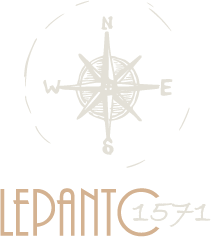
The 16th century marks the beginning of what we call today “early modern period”. It is the century of the great discoveries and the territorial expansion of the Europeans beyond the Oceans, which started in search of gold and spices and ended up in the formation of networks of colonies. The Ottoman Empire controlled an important part of the seas, particularly in the Indian Ocean and the Eastern Mediterranean. It was therefore a prerogative for the western powers to loosen up the Ottoman control of the seas. Even if the ideological-religious substratum of the confrontation between Christianity and Islam didn't exist, it would have to be “invented” in order to justify the military and diplomatic activity which followed and which was marked by ferocious battles at sea or land.
It is not a coincidence that Fernand Braudel chose to focus his model study on the Mediterranean on the era of the reign of Philip II, which covers more or less the second half of the 16th century. Exactly in this period the Mediterranean became the center of the political and military developments, whereas at the same time its people and its landscape continued to experience the “longue durée”, i.e. the slow evolution and the historical courses which are visible until today.
